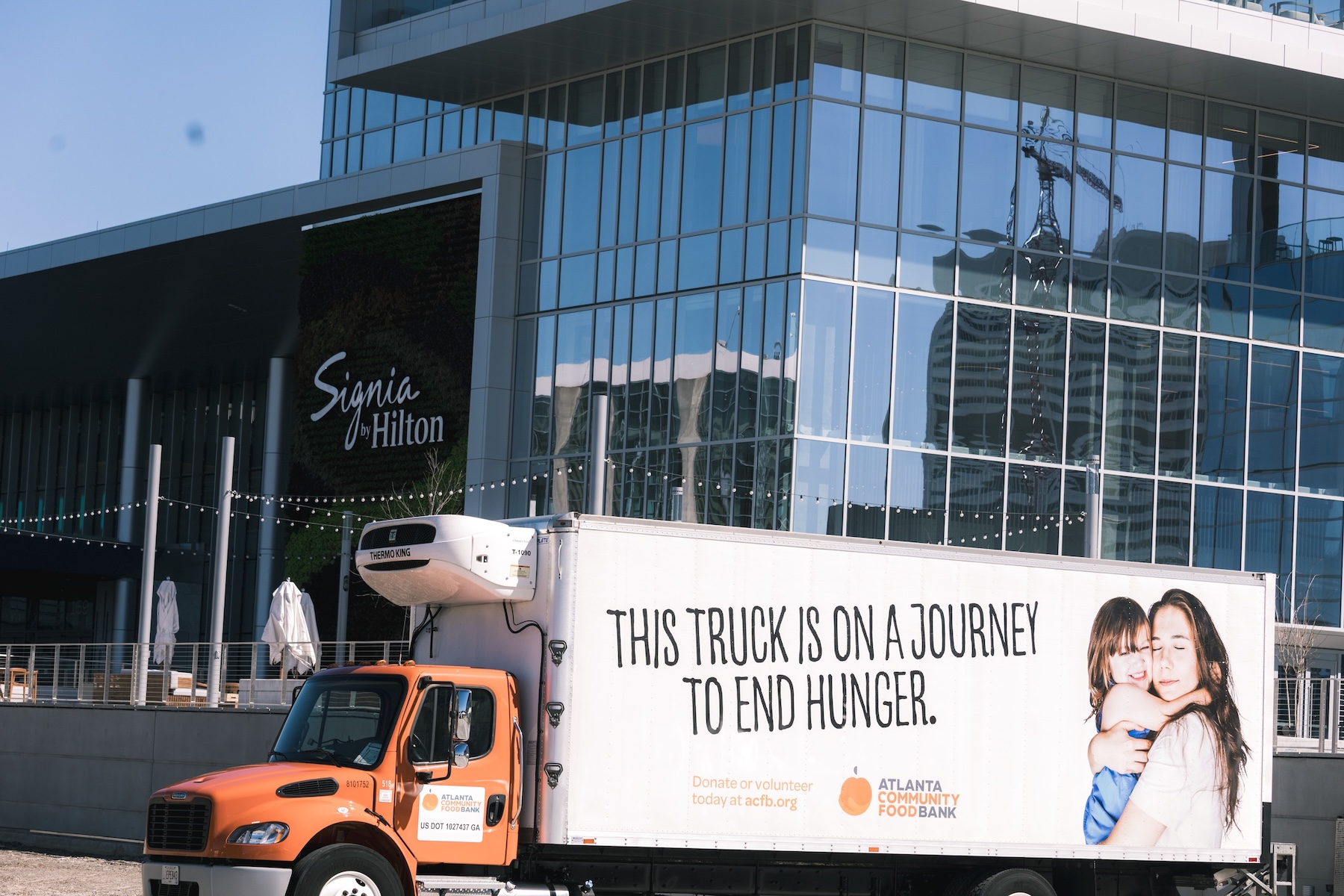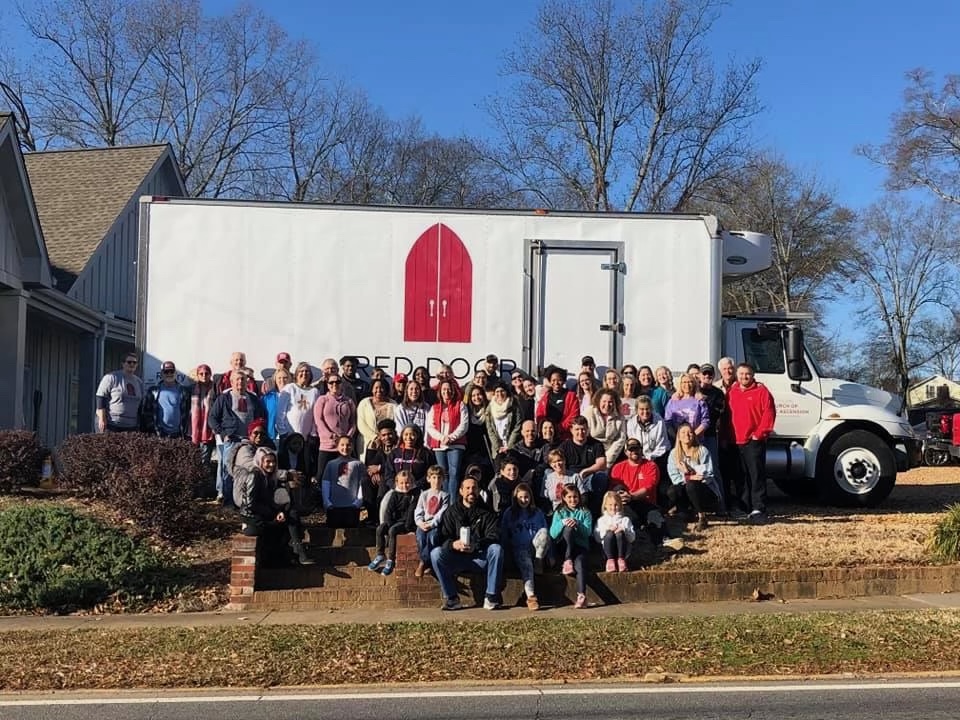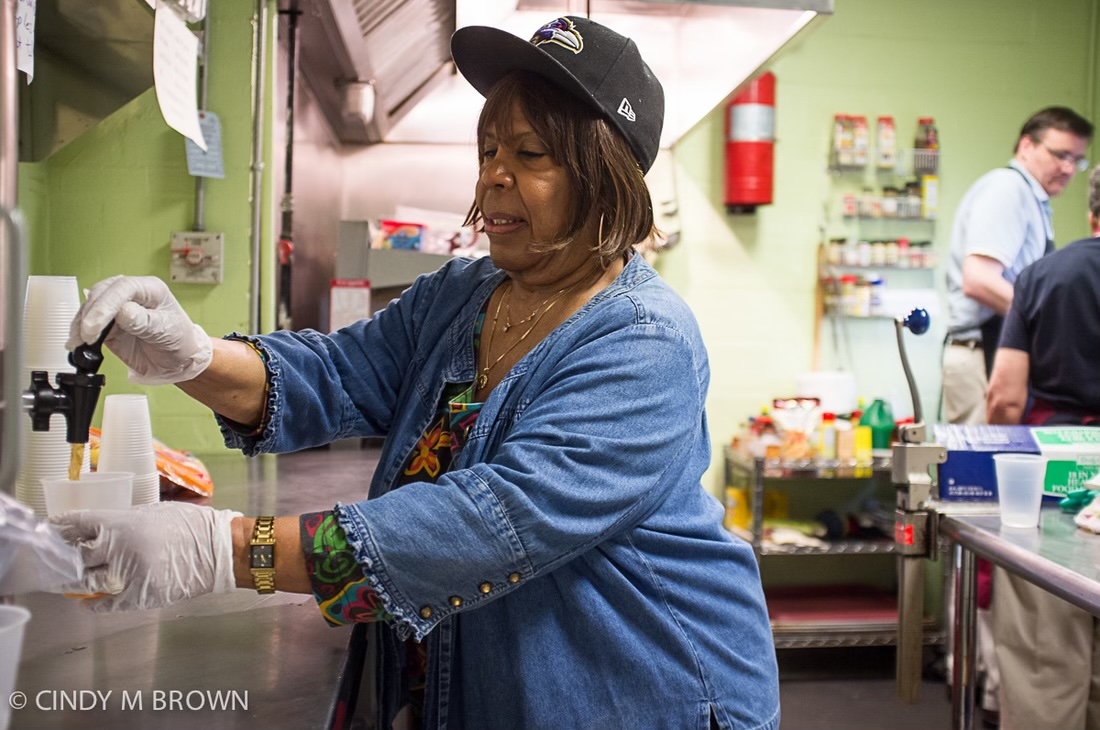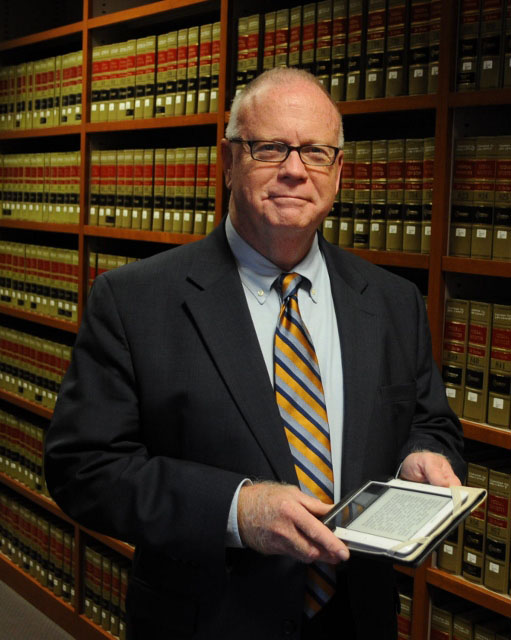
Beyond Jesus’ admonition in Matthew 25: 35 to feed the hungry and give water to those who are thirsty, the Bible contains many passages that encourage helping the hungry. For instance,
- Isaiah 58:10, “If you spend yourselves in behalf of the hungry and satisfy the needs of the oppressed, then your light will rise in the darkness, and your night will become like the noonday”.
- Proverbs 19:17, “Whoever is kind to the poor lends to the Lord, and he will reward them for what they have done.”
- Luke 3:11, John the Baptist tells people who have more than they need to share with those who have nothing.
- Ezekiel 18:7 says that a merciful creditor does not rob the poor but instead gives food to the hungry and provides clothes for the needy.
Beyond encouraging Christians to be kind and generous to those who are less fortunate these verses point to ways that Christians can live out the virtues of donating food or money to organizations that help feed the hungry, volunteering at a local food bank or soup kitchen, or simply by sharing our own food with someone who is hungry.
That’s especially true in Georgia where too many of its 10.7 million residents struggle with hunger and malnutrition. Some 1.2 million Georgians face hunger daily, including more than 377,000 children, according to Feeding America, a nationwide food program that partners with eight food banks in Georgia.
A Georgia Senate study found that one in eight Georgians battle food insecurity, meaning their households do not have consistent access to enough nutritious food.
So, while Christians feed the poor and help people who are in need, directly feeding the needy is just one way that by serving others they serve Christ.
That’s why some Christians go beyond buying food for a hungry person on the street or in the convenience store because they believe that God often provides for people through believers.
Some Christians even argue that handouts don’t ultimately help the poor. That it’s better to steer them to shelters, housing, work training programs, and mental health care. To build new systems that prevent poverty in the first place.
Experts who study the problem of poverty say that providing personal charity and working for systemic change are not mutually exclusive. In fact, they must be done in concert.
Mark Holmgren, a community development executive and former Tamarack Institute director says the charity and systems change models are connected.
“One common position is that we need to move from the Charity Model to efforts focused on systemic change. The thinking appears to be that the two are not connected, have little or no relationship. Some talk about this in ways that suggest the Charity Model and Systems Change are polar opposites, calling for us to choose one over the other,” Holmgren wrote in a Tamarack article Thinking about the Charity Model and Systems Change Debate.
“Further, such an either-or approach to making change is precisely why big change efforts often fail or fall short of the mark. It is ironic that in this day and age where we all recognize that social issues are complex and require complex solutions, we still look for definitive, if not simple answers,” said Holgren, who writes about social innovations, including the development of Upside Down Thinking, an approach to thinking differently, if not disruptively.
But getting back to Jesus, today many of His followers are pushing beyond handing out food and water to thinking of food as a fulcrum for change.
Parishioner Bill Bolling established a food bank in a closet at St. Luke’s Episcopal Church in Atlanta that grew into the Atlanta Community Food Bank, the largest distributor to food pantries in Georgia. Bolling’s initial vision of feeding hungry neighbors four decades ago is now bringing people together and serving almost half a billion pounds of food to families, children, and seniors in need.
In Columbus, St. Thomas Episcopal Church united with other churches in 1985 to create The Wynnton Neighborhood Network (WNN). Over the years, the congregations have changed but the mission has not. And St. Thomas continues to provide office, storage, and workspace for WNN volunteers. The parish is among Eight congregations providing volunteers, leadership, finance, and food for WNN to provide emergency food and utility assistance to those in Muscogee County.
In Macon, Christ Church, St. Francis, and St. Paul’s Episcopal churches joined the congregations of other faith traditions to create The Loaves and Fishes Ministry of Macon. Loaves and Fishes has provided essential services to low and moderate-income, homeless individuals and families at-risk of homelessness for 54 years. Its Jack Steppe Day Life Center provides groceries, meals, laundry services, bible class, case work, prescription assistance, dental assistance, Georgia ID and Birth Certificate assistance, and referrals to other service agencies. LFM-Macon services also increase the capacity of the clients to either become or remain self-reliant.
St. Gregory the Great Episcopal Church in Athens supports several food pantries, including the Athens Area Emergency Food Bank and the Feeding Eastside (FEAST)food distribution program that occurs six times a year at Covenant Presbyterian Church. Each week St. Gregory parishioners help fill the Little Red Wagon in the church narthex with food and consumable supplies that are donated to the Athens Food Bank.
Malachi’s Storehouse in Dunwoody, distributes food, baby supplies and clothing every Wednesday from 9:00 a.m. to 12:30 p.m. For over 30 years, Malachi’s has faithfully served people of all ages with dignity and respect no matter what life experience brings them. Started in 1991, by St. Patrick’s Episcopal Church Malachi’s Storehouse has grown organically over the years from a desire to help others. Its name comes from Malachi 3:10.
Bring the whole tithe into the storehouse, so that there may be food in my house. Test me in this, says the Lord Almighty, and see if I will not throw open the floodgates of heaven and pour out so much blessing that there will not be room enough to store it.
Malachi’s became a partner agency of the Atlanta Community Food Bank in the mid 1990’s. Today they receive about three pallets of food from the ACFB every Tuesday, where a waiting team of 10 volunteers unloads and readies the food.

The Red Door food ministry of The Episcopal Church of the Ascension in Cartersville was started in 2013. When the COVID-19 pandemic occurred the robust ministry immediately expanded. Red Door and its partner nonprofits fed the 3rd shift staff at the Cartersville hospital. Residents who had lost their jobs to the pandemic received hot meals to go from donated food prepared by volunteers or local eateries that prepared high-quality meals.
Each night volunteers began with a prayer for those who prepared, served, and received meals. The drive-through’s volunteers served upwards of 900 meals a day. By May 2020 hundreds of volunteers had served over 50,000 meals provided by the generous donations of hundreds of individuals, companies, and organizations.
Red Door Managing Director Jeff Tindall said all involved “were blessed to get to meet and serve so many of our neighbors. We have formed new friendships and partnerships along the way. We have broken down walls and built bridges to serve alongside each other for a common mission.
In Southwest Atlanta, St. Paul’s Episcopal Church operates the 365 Food Pantry that meets the needs of more than 140 children, seniors, and grandparents in their community. Families receive from 12 to 19 lbs. of food every other week. Every Thanksgiving the 365 Pantry provides approximately 225 Thanksgiving baskets filled with an entire holiday meal to members of the community.
St. Paul’s also participates in the Atlanta Community Food Bank Hunger Walk Run. St. Paul’s typically has over 100 members who raise money and participate in this event. All proceeds raised from this event go to support Georgians who suffer from hunger and food insecurity. The Hunger Walk helps six local nonprofit organizations, including the Episcopal Community Foundation for Middle and North Georgia.
A few miles east of St. Paul’s The Diocese of Atlanta ministry Emmaus House has distributed food to those in need since 1967. Today, it’s “client-choice” pantry serves 520 families with 100,000 pounds of food annually. Located in a “food desert” in the Peoplestown community. The client-choice approach offers patrons the option of receiving foods they like, rather than a prepackaged box. That reduces waste and — most importantly — preserves the client’s dignity.
Emmaus House’s food ministry is operated by its Muriel Lokey Help Center. The Lokey Center also provides crisis intervention rent, mortgage, utility, or property tax assistance; benefits access screening, soft skills training, peer support, and collaboration with workforce development partners; direct services or referrals that allow people to focus on longer-term results; and intensive case management through the Supports for Success program for those seeking higher employment.
Feeding the poor is a regular occurrence at the Church of the Common Ground. The church serving Atlanta’s homeless gathers at 1 p.m. on Sundays at the north end of Woodruff Park. Other parishes of the Diocese sign up to bring lunch to share with Common Ground parishioners. Common Ground Vicar The Rev. Kim Jackson begins each service with the call to worship “Brothers and Sisters in Christ, I have Good News. God is here, God is right here with us, and this is Holy Ground.”
Common Ground, like other parishes, holds weekly Bible Study. The difference is that it meets in the courtyard of Central Presbyterian Church located across from the Georgia Capitol where Rev. Jackson serves as a state senator. Members of the outdoor parish also volunteer at outreach programs, including its Common Soles non-medical foot clinic, the annual All Soul’s Homeless Requiem at the Cathedral of St. Philip, and to build homes for Habitat for Humanity.
St. Mary and Martha Episcopal Church in Buford is using some of its 34 acres of open space to create a garden in South Hall County to help families fight food insecurity.
Priest in Charge The Rev. Laura Masterson said their “excess” church property project has drawn community support and is helping grow the church’s community impact.
Masterson said the garden, named Grow2B, was started with a grant from the Episcopal Community Foundation of Middle and North Georgia.
“This church experienced hardships during the pandemic all while creation just did its thing on our land.” ‘How do we grow? How do we heal? To what do we cling?’ were some of the questions we asked ourselves before ECF reminded us to look out our window to God’s creation to find the answer,” Masterson said. See the Grow2B video.

Holy Comforter Church’s Friendship Center in Atlanta is an inclusive community that promotes the mental, physical, and spiritual well-being of adults marginalized by mental health challenges and poverty. Friendship Center provides a greenhouse and gardening, wellness and recovery through the arts and food. Other diocesan parishes provide volunteers to serve and deliver meals.
St. George Episcopal in Griffin, founded in 1864, has a long history of community service. In 1989, it began the Five Loaves and Two Fish Food Pantry which now operates as All Faith Ministries, Inc. When multiple tornadoes tore through Griffin on January 12, 2023, St. George’s provided 300 meals to recovery workers clearing roads, restoring power, and removing debris.
The Diocese of Atlanta has actively supported these and other food ministries at least since 1982.
That’s when The Episcopal Charities Foundation was established at the 75th Annual Council of the Diocese of Atlanta under the leadership of the late Rt. Rev. Bennett Sims, the sixth bishop of the Diocese of Atlanta.
In its first 30 years, the Episcopal Charities Foundation granted more than $4 million to more than 175 ministries and organizations such as food pantries, health clinics, prison ministries, homeless shelters, AIDS victim support, court advocates for children, and enrichment and empowering programs for the unemployed.
In recent years, the organization honed its mission and vision to focus on creating a bigger impact for the community through funding, leadership, and resources which enable Episcopal parishes and nonprofit partners to lift up people facing poverty and oppression and to achieve significant, long-lasting impact in the Diocese of Atlanta.
In 2016, the foundation hired its first dedicated Executive Director, and the 110th Annual Council of the Diocese of Atlanta, approved a resolution to change the name of ECF to the Episcopal Community Foundation for Middle and North Georgia.
To learn more about food ministries, contact any of the programs featured in this article. If you are part of a food ministry that isn’t included in this article, send us an email and we’ll get it added to the list. Learn more about The Episcopal Diocese of Atlanta, 120 worshiping communities in middle and north Georgia.

